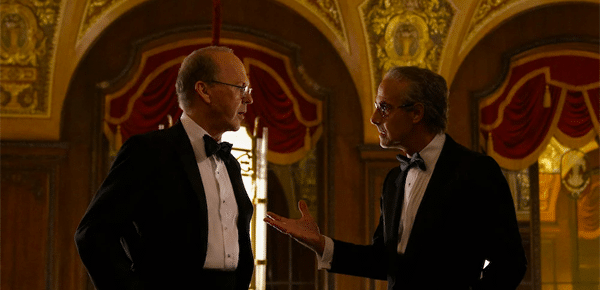
By Wendy Knowlton
Sara Colangelo’s Worth explores the legal and emotional minefield that emerged after 9/11. Well-meaning but pragmatic lawyer, Kenneth Feinberg (Michael Keaton) sees the world through the lens of statistical analysis and due process. So when, in the tragedy’s aftermath, the Bush government fears that lawsuits will bankrupt the airline industry and endanger the economy, he volunteers for a task no one else wants. As Special Master of the September 11 Victim Compensation Fund, he must persuade at least 80% of victims’ families to waive their right to litigation and accept a formula-determined payment for the lives lost. Ultimately, Feinberg believes, this will benefit everyone.
From one perspective, the film’s path is predictable. Feinberg (upon whose book Worth is based) must journey from clinical assessment to a realisation that lives are unique and can’t be slotted into pre-determined boxes. But the more thought-provoking focus is the impossibility of satisfying everyone and everything. The competing agendas of airline heavy-weights, political number crunchers, grieving relatives and those trying to create “fair” solutions for all, clash. There is no way to really “fix” things. So whilst the race to reach that 80% before the deadline is highlighted, such an achievement is a muted triumph at best. Many questions remain unresolved, as they must, because there are no perfect answers.
As the planes hit, Feinberg sits on a train, insulated by headphones and classical music, initially oblivious to the horror other passengers see unfolding. This disconnect is starkly obvious when Feinberg chairs a meeting with the families he hopes to enlist. His tone-deaf promises of “fast money… tax free” result in outrage. Widower Charles Wolf (Stanley Tucci) secures the calm required for Feinberg to continue, but later reveals himself as the instigator of the “Fix the Fund” initiative, challenging the assumption that any formula can fairly differentiate between the worth of a window cleaner and a CEO. It is only by getting Wolf and his supporters on board that Feinberg has any hope of reaching his goal.
Keaton’s performance is understated but involving, and he is ably supported by Tucci’s more emotional Wolf. Other standouts are Laura Benanti as a grieving widow and Amy Ryan as the law firm’s human face, Camille Biros. People look for someone to blame – God, the airlines, the government, extremists, lawyers. Their anger and pain seek an outlet, and whilst monetary compensation is needed for many to survive, there is something offensive about calculations that seem to reflect how society values a person. What the bereaved want is what they can’t have – a life back, a body found, a rationale for the unthinkable. What they can have is someone who listens rather than tells them what to do. In this way the stories of the victims are told and remembered.
Feinberg initially said, “Fair is not the goal here. It’s finish … and move on.” But this wasn’t a situation that could be neatly wrapped up. In the end it’s not the seven billion dollars paid out that resonates, but the walls of missing posters and the stories the family members tell of final phone calls – just as painful now as twenty years ago.
Worth is currently available
on Netflix
Kenneth Feinberg (Michael Keaton) and Charles Wolf (Stanley Tucci) argue about the impossibility of reducing the worth of human life to a formula.






